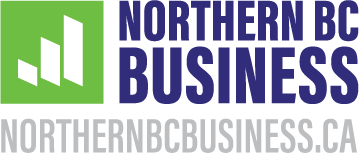
The federal government has announced it will be discontinuing its First-Time Home Buyer Incentive (FTHBI) program as of March 21.
Introduced in 2019, the shared-equity program is administered by the Canada Mortgage and Housing Corporation (CMHC) and involves a government contribution of 5% to 10% towards the down payment for first-time homebuyers in exchange for a proportional share in the future increase or decrease in the home’s value.
Buyers aren’t required to make any monthly payments, but the loan has to be repaid—at current fair market valuation determined by CMHC using an independent appraisal—either after 25 years or upon the sale of the property.
Since its inception, the program has faced criticism and struggled with a participation rate far below initial government estimates.
When it was unveiled, the government earmarked $1.25 billion over three years with the goal of assisting 100,000 homebuyers to purchase homes. As of March 2022, CMHC received less than 16,000 applications worth about $285 million in shared equity mortgages.
Critics argued that the maximum purchase price of $505,000 permitted of under the program wouldn’t do much to assist first-time buyers in the country’s largest markets where prices are significantly higher.
Five months into the program, CMHC responded by raising the maximum purchase price permitted under the FTHBI to about $722,000 for buyers in Toronto, Vancouver and Victoria.
CMT reached out to CMHC for the government’s rationale behind the program’s discontinuation, but didn’t hear back by press time.
Mortgage industry expects little impact from the decision
While there was some mixed reaction among brokers to the news, most agree the program had little impact in terms of addressing the larger affordability crisis facing borrowers.
“I am not at all surprised it was cancelled,” David van Noppen, mortgage agent and owner of More Than Enough Financial, told CMT. “The uptake was low as the cost to the client far outweighed the benefit, especially with the rise in home prices in the last five years.”
van Noppen added that the program may have suffered from poor timing with its release in 2019.
“By the time the industry and the recipients understood the program, home prices were jumping up and the cost/benefit began to be evident,” he said. “As a broker, it is my responsibility to outline the cost/ benefit to the client and every time the calculation was completed, the risk of exponential increases in property value, along with the cap on the purchase price, made the program irrelevant as the rise in price far outpaced the rise in income.”
While the program may not have been suitable for all buyers, it did meet a need for brokers in less expensive markets.
“It was nice to be able to have ‘A’ program that did work for many files in some of the provinces with lower price points on homes,” said Karen Pacheco, an Alberta-based mortgage planner with Mortgage Architects. “Even though this program may not have been used by many markets, it was still popular in many areas and is disappointing to see it being discontinued.”
Pacheco said the program was desirable among her new-to-Canada clients as well as those purchasing new builds, who could take advantage of the 10% government down payment contribution.
“I have a large amount of pre-approvals in place that were also planning on using this program, therefore having a short deadline of March 21 is a huge disappointment,” she added.
Jill Moellering, also based in Alberta, said the discontinuation of the program isn’t likely to have much impact given that the eligibility criteria largely excluded most buyers in the country’s largest and most expensive cities.
“It was an option for clients who qualified in certain markets to marginally reduce their monthly cost of living, which was great where and when it worked, but as a broader effort it made no impact to address the overall housing crisis,” she said. “Prices continue to rise, rents have continued to rise as housing supply is nowhere near meeting current and future demand.”
Implications for those still wanting to apply
While applications are still being accepted, CMHC said any final submissions or re-submissions must be received no later than March 21.
“If an application is submitted on or before the March 21, 2024, deadline (midnight ET) and is declined due to an application error, the mortgage loan insurer is responsible for rectifying the issue and resubmitting the application,” the agency said in its public notice.
It added that applications resubmitted after March 21 must undergo a manual review, and that requests for such reviews have to be received by March 25.
A timeline of the rise and fall of the FTHBI
Here’s a brief look at the key milestones in the lifecycle of the FTHBI, charting its journey since its inception:
- March 2019: The FTHBI was first announced in the Liberal government’s 2019 budget.
- September 2019: The program officially became available to homebuyers.
- December 2020: The government unveiled details of previously announced changes for buyers in Toronto, Vancouver and Victoria.
- They included an increase to the maximum eligible household income to $150,000 (an increase from $120,000), and allowing participants to borrow up to 4.5 times their household income, up from four times.
- May 2021: The changes came into effect.
- March 2024: CMHC announces the discontinuation of the program.


